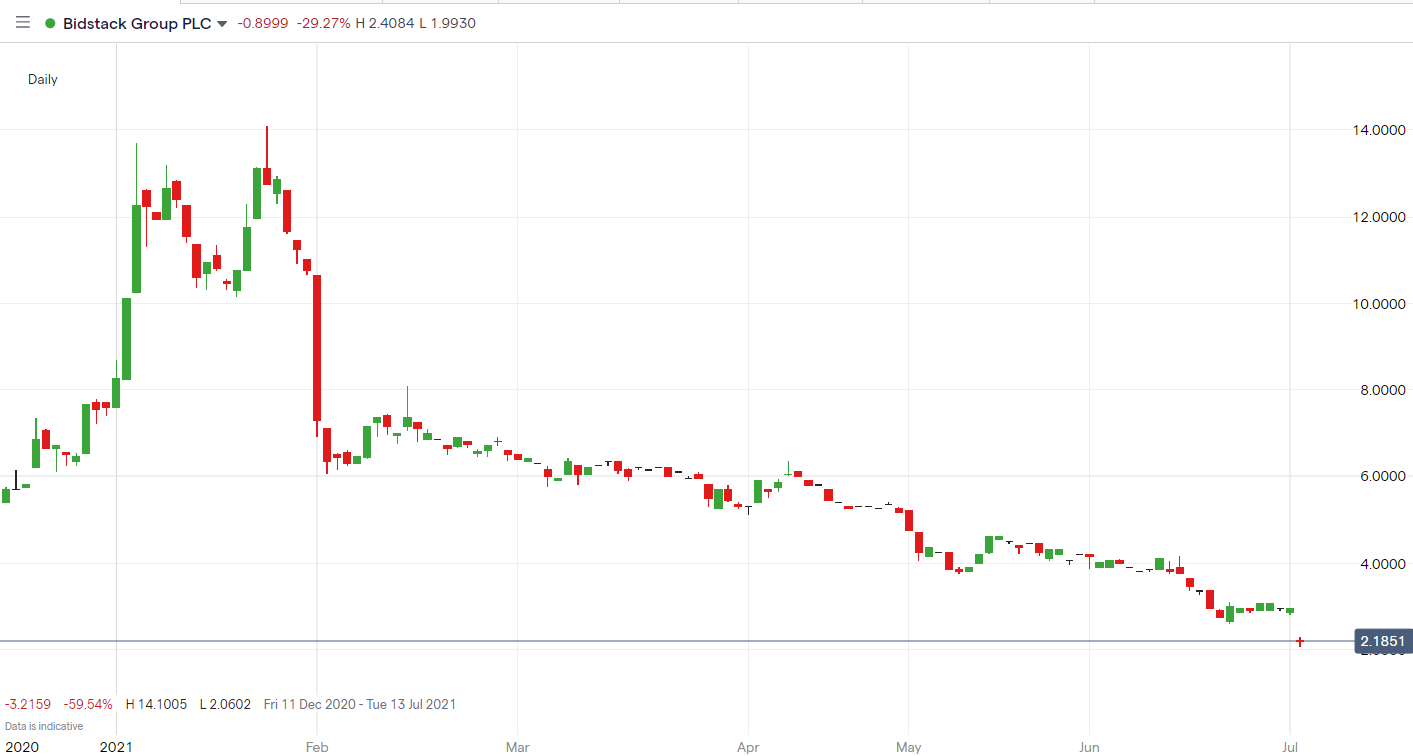
Bidstack (LON: BIDS) shares are down on Friday after the company revealed it raised £10.86 million in a share placing.
The company sold 488.1 million shares at 2p each to institutional and other investors, raising £9.76 million. In addition, directors of the company subscribed for 55 million shares raising further proceeds of £1.1 million.
At least £3.2 million of the placing was raised under the Enterprise Investment Scheme (EIS) and/or from Venture Capital Trusts (VCT).
Bidstack said it will use the proceeds raised under EIS and/or from VCTs to fund the development of a platform to allow commercial rights owners, such as sports league bodies and global sports teams, to control the content that appears in their licensed intellectual property.
The net proceeds of the fundraise will be used to fund working capital requirements, including product strategy, technology, research and development, commercial growth in core markets, mainly the UK and the US, and further marketing to educate and enable sales.
Once the placing is complete, Bidstack will also appoint Bryan Neider to the board as a Non-Executive Director and Chair of the Audit Committee.
“We are extremely pleased with the level of interest we have received from new and existing shareholders. Bidstack's market opportunity is developing in line with our expectations and on completion of the Fundraise, the company will be well funded and ready to capitalise on that opportunity,” said James Draper, CEO of Bidstack.

The company's share price is down 28.55% on Friday following the placing, priced at 2.195p.
Should you invest in Bidstack shares?
Bidstack shares are traded on the London stock exchange's AIM market (the alternative investment market), which is the submarket specifically for smaller companies. AIM stocks are attractive to investors as they have tax advantages and smaller companies have the potential to benefit from rapid growth. But are Bidstack shares the best buy? Our stock market analysts regularly review the market and share their picks for high growth companies
